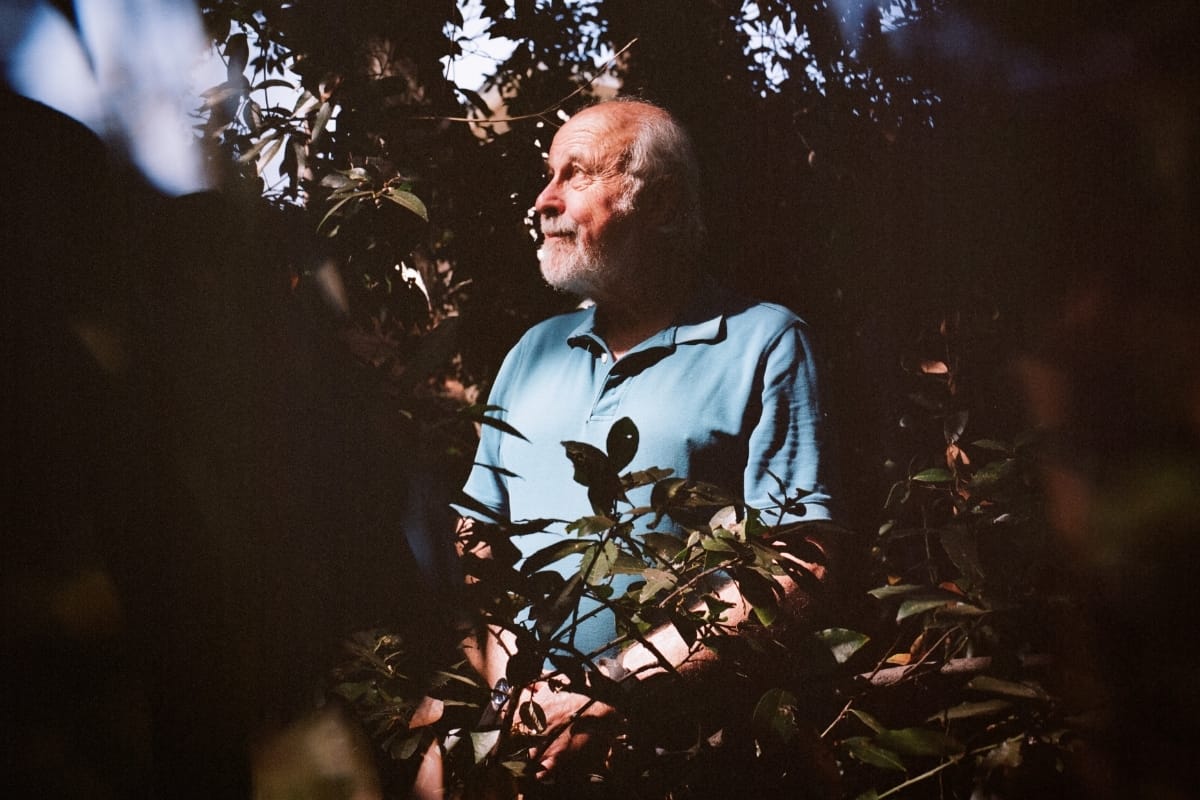

Deep dives and investigations
you won't find anywhere else

The Godfather of Modern Microdosing
Jim Fadiman used to be a skeptic of microdosing, favoring mind-blowing experiences instead. Here’s why he changed his mind.
By Eddie Kim
Photography by Matt Goff
In the corner of Jim Fadiman’s yard stands a fat sequoia tree, with a trunk that splits in two before ascending to the sky. He and his wife Dorothy planted it some 50 years ago, not long after they moved into their quiet home in Menlo Park, California.
“Nobody figured out why it grew so fast,” he says, peering up into its canopy.
The sequoia is the first thing he shows me when I arrive to discuss his life’s work. In those 50 years, Fadiman has become one of the world’s foremost experts on psychedelic use. He began his experimentation as a college student, alongside counter-culture luminaries like a young Ram Dass. Not long after, he had his first “transcendent” experience with a high dose of LSD; he left the trip feeling evolved and aware, as if his multiple selves had become more clearly defined.
Blessed with a restless mind, Fadiman sought cutting-edge efforts to study how tripping can fundamentally change people, and co-authored a seminal 1966 study on using psychedelics to trigger creative problem-solving. He later embarked on some unorthodox career detours, from managing 20,000 acres of forest as a consultant to lecturing on the esoteric Islamic tradition of Sufism.
Fadiman likes to joke that he was woefully underqualified for some of these jobs, but his headstrong curiosity and clever tongue led him to insights into a wide breadth of humanity — and how using psychedelics can radically shift the way we see our place in that world.
Upgrade to read the rest of this story.
At DoubleBlind, 99% of our journalism is free. Once a week, we release a feature available to our premium subscribers, who help make our work possible.
Try FREE for 30 daysA subscription gets you:
- Weekly deeply-reported stories and investigative features
- Full access to our paywalled journalism


